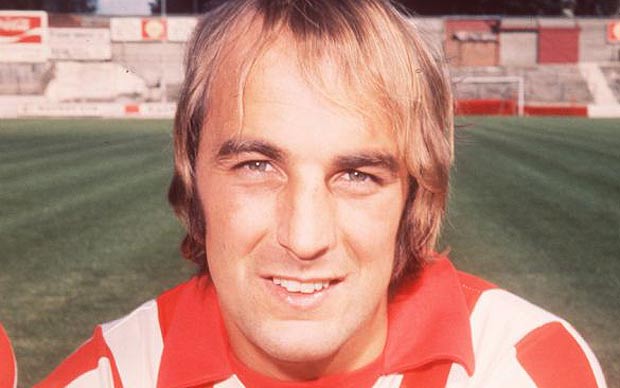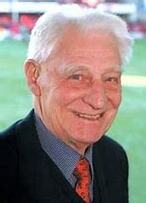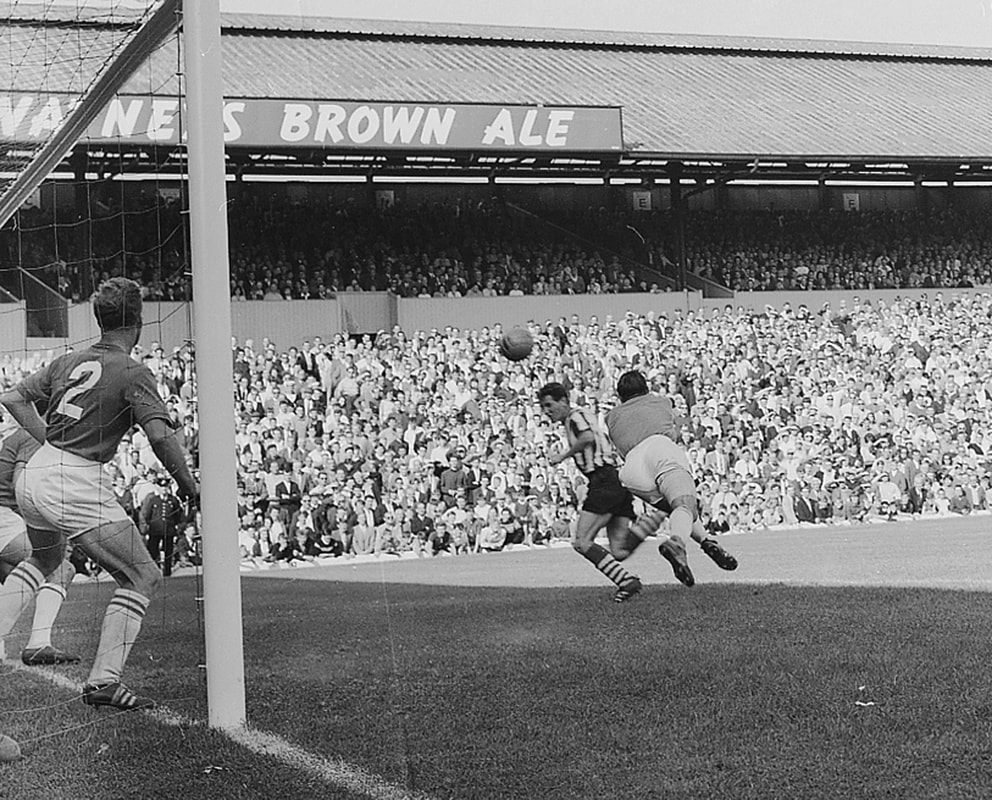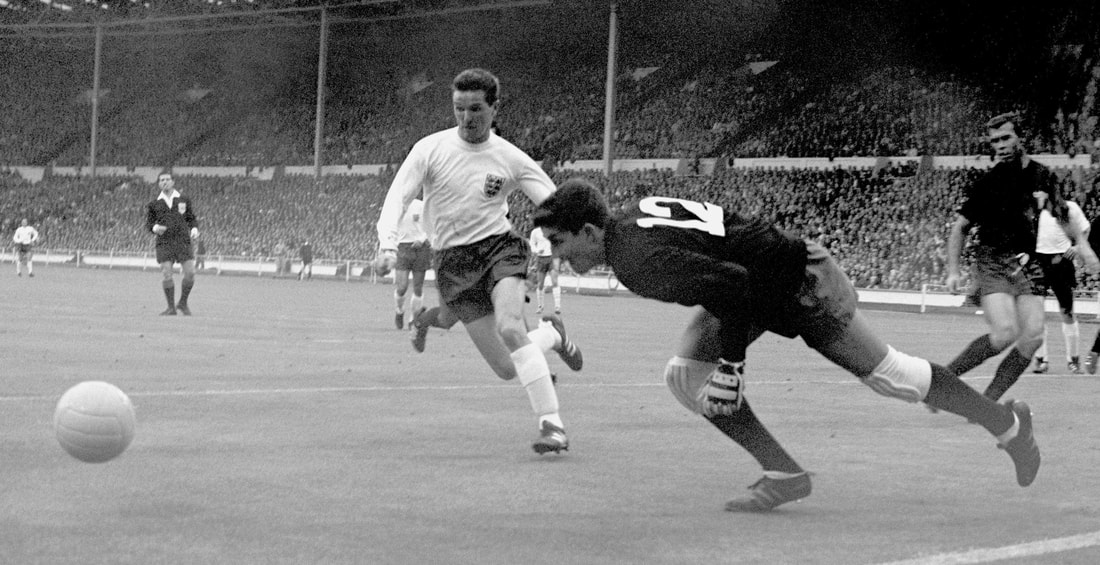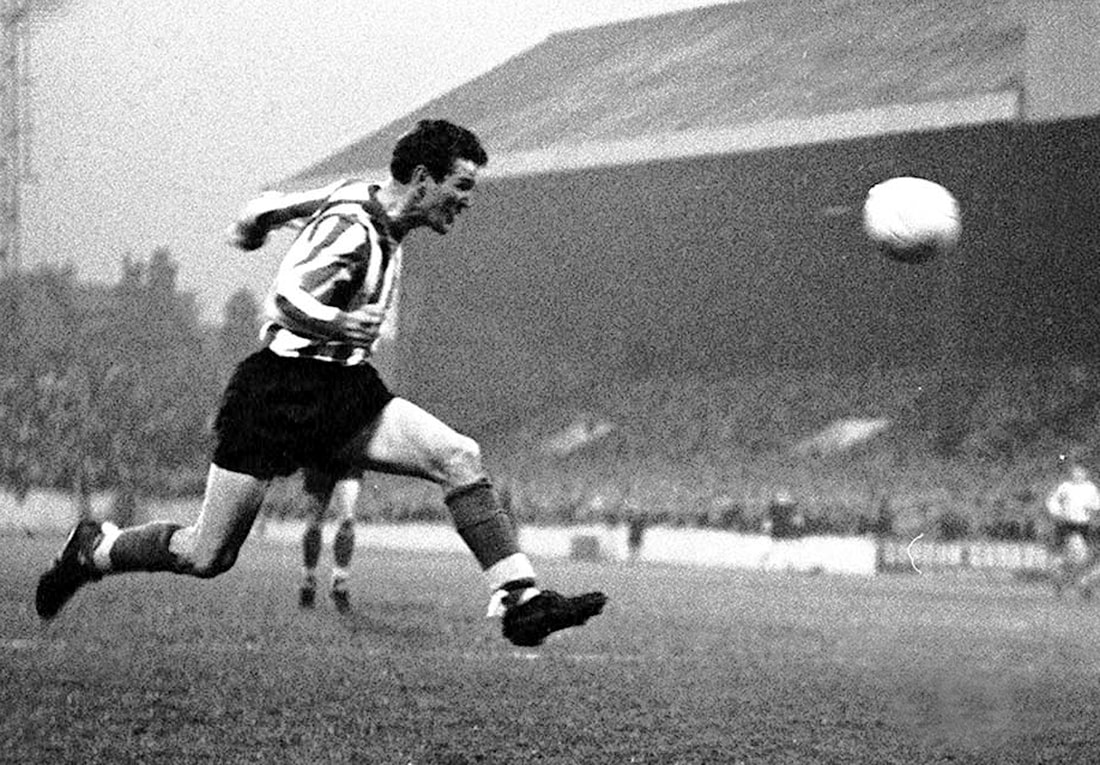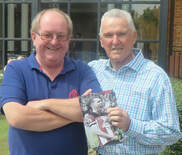
Terry Paine, MBE, now living in South Africa, remains Southampton’s all-time record appearance holder, playing a huge 808 games, scoring 160 goals for the club, earning 19 England caps – and a 1966 World Cup winners medal.
What doesn’t appear on his impressive sporting CV is that, in his teenage days, he was a promising young wicket-keeper/batsman turning out for the powerful Hyde Ramblers and representing the Winchester & District CA against the MCC, a six-hit from the Highcliffe estate, where he grew up.
“When I joined Saints as a 16-year old, we had time to play both football and then cricket in the summer, until pre-season training began,” he recalled.
“Myself and Colin Holmes, who Ted Bates signed at the same time as me, played for Hyde Ramblers under John Macey, who ran the club.
“We had a very decent side and went unbeaten for a long time, including winning the Medstead and Tichborne evening knockout trophies.
“I used to love keeping wicket. Being a winger, I was pretty quick and could jump (to avoid tackles) and had pretty good hand-eye coordination.
“I was picked to play for the Winchester & District team against the MCC at the King George V Ground and caught Denis Silk (Cambridge University & Somerset) down the leg-side off the first ball of the match.
“He turned around and said ‘well done’ and then walked back to the pavilion.”
Fine cricketer
Paine recalled some of his former Hyde Ramblers’ team-mates, among them the late Don Marks, who succeeded John Macey as captain, and whose son Paul still turns out for Hursley Park.
“Don was a fine cricketer, an excellent bowler, as was Maurice Risbridger, a prolific run scoring batsman in his time.
“Bryan Timms, who went on to play for Hampshire, also turned out for us.”
Increasing football commitments with Saints curtailed a promising cricket career for Paine, who has fond memories of his times in his whites before swapping for a more familiar red and white striped attire.
“When we began touring in the summer months, it all ended unfortunately, but I look back on some wonderful times playing cricket.”
Enjoying a two (or was it three ?) hour lunch at the Wanderers Club in Johannesburg is always one of the high spots of visiting South Africa – a wonderful trip down Memory Lane guaranteed, such conversations being rare these days.
Paine remains in remarkable nick for an 80-year old, who has another birthday a few weeks away.
“I still play golf regularly – off a nine handicap, though I need a few bad rounds to get it down a bit,” he laughs.
What doesn’t appear on his impressive sporting CV is that, in his teenage days, he was a promising young wicket-keeper/batsman turning out for the powerful Hyde Ramblers and representing the Winchester & District CA against the MCC, a six-hit from the Highcliffe estate, where he grew up.
“When I joined Saints as a 16-year old, we had time to play both football and then cricket in the summer, until pre-season training began,” he recalled.
“Myself and Colin Holmes, who Ted Bates signed at the same time as me, played for Hyde Ramblers under John Macey, who ran the club.
“We had a very decent side and went unbeaten for a long time, including winning the Medstead and Tichborne evening knockout trophies.
“I used to love keeping wicket. Being a winger, I was pretty quick and could jump (to avoid tackles) and had pretty good hand-eye coordination.
“I was picked to play for the Winchester & District team against the MCC at the King George V Ground and caught Denis Silk (Cambridge University & Somerset) down the leg-side off the first ball of the match.
“He turned around and said ‘well done’ and then walked back to the pavilion.”
Fine cricketer
Paine recalled some of his former Hyde Ramblers’ team-mates, among them the late Don Marks, who succeeded John Macey as captain, and whose son Paul still turns out for Hursley Park.
“Don was a fine cricketer, an excellent bowler, as was Maurice Risbridger, a prolific run scoring batsman in his time.
“Bryan Timms, who went on to play for Hampshire, also turned out for us.”
Increasing football commitments with Saints curtailed a promising cricket career for Paine, who has fond memories of his times in his whites before swapping for a more familiar red and white striped attire.
“When we began touring in the summer months, it all ended unfortunately, but I look back on some wonderful times playing cricket.”
Enjoying a two (or was it three ?) hour lunch at the Wanderers Club in Johannesburg is always one of the high spots of visiting South Africa – a wonderful trip down Memory Lane guaranteed, such conversations being rare these days.
Paine remains in remarkable nick for an 80-year old, who has another birthday a few weeks away.
“I still play golf regularly – off a nine handicap, though I need a few bad rounds to get it down a bit,” he laughs.
Body builder
Paine vividly recalls how his Southampton career began all those years ago.
“When I was a 16-year-old playing for Winchester City, in the 1950s, there was no such thing as an academy. My father was a welder for British Railways and I spent a year as an office runner there before signing up for an apprenticeship in the body building shop in Eastleigh, constructing railway carriages.
“I would have made the worst body builder, I was absolutely useless; football came to my rescue there,” laughs Paine.
It was a colleague in the railway body shop that proved the catalyst for Paine’s career. Arsenal called Paine to London for a trial and a fellow worker, a die-hard Southampton fan, phoned club manager Ted Bates to say he was about to miss out on what the newspapers, these days, would call a teenage sensation. What followed could have led to a court case in the uptight world of modern football.
“Ted Bates got in myself and Colin Holmes, and locked the office door and said he wouldn’t open until we signed. Time was getting on and we were both starving so we signed just to get out.”
Saints debut at Cowes
Bates sent a cheque for £25 to Winchester City to seal the transfer. Paine’s signing on fee was £10. He spent it on a bright red jersey on one of his first games for the reserves, in the Hampshire League, against Cowes at Westwood Park on the Isle of Wight.
“Money was scarce for the players, even though most clubs were pulling crowds in tens of thousands. The maximum wage was £20 in the winter and £17 in the summer; it wouldn’t have mattered if you had the dash of Ronaldo, you could have been paid the same as a loyal, lumbering, defender for Sheffield Wednesday.
“We always hoped we would play Ipswich just before Christmas because the Cobbold family that owned the club used to give all the players a turkey. In those days we struggled to buy a chicken for Christmas,” Paine recalls.
Paine vividly recalls how his Southampton career began all those years ago.
“When I was a 16-year-old playing for Winchester City, in the 1950s, there was no such thing as an academy. My father was a welder for British Railways and I spent a year as an office runner there before signing up for an apprenticeship in the body building shop in Eastleigh, constructing railway carriages.
“I would have made the worst body builder, I was absolutely useless; football came to my rescue there,” laughs Paine.
It was a colleague in the railway body shop that proved the catalyst for Paine’s career. Arsenal called Paine to London for a trial and a fellow worker, a die-hard Southampton fan, phoned club manager Ted Bates to say he was about to miss out on what the newspapers, these days, would call a teenage sensation. What followed could have led to a court case in the uptight world of modern football.
“Ted Bates got in myself and Colin Holmes, and locked the office door and said he wouldn’t open until we signed. Time was getting on and we were both starving so we signed just to get out.”
Saints debut at Cowes
Bates sent a cheque for £25 to Winchester City to seal the transfer. Paine’s signing on fee was £10. He spent it on a bright red jersey on one of his first games for the reserves, in the Hampshire League, against Cowes at Westwood Park on the Isle of Wight.
“Money was scarce for the players, even though most clubs were pulling crowds in tens of thousands. The maximum wage was £20 in the winter and £17 in the summer; it wouldn’t have mattered if you had the dash of Ronaldo, you could have been paid the same as a loyal, lumbering, defender for Sheffield Wednesday.
“We always hoped we would play Ipswich just before Christmas because the Cobbold family that owned the club used to give all the players a turkey. In those days we struggled to buy a chicken for Christmas,” Paine recalls.
He remembers fondly the Pompey derbies in the old Second Division.
“They had a huge fellow at left-back marking me, Roy Lunniss. He was about 6’5” tall and took an almighty throw-in. Jimmy Dickinson and Ron Saunders were both in the Pompey side of the time,” he remembered.
It was on the mudheaps where Paine honed his craft as one of the fastest, toughest, trickiest and most enduring wingers England ever produced. He played 19 times for England, scoring seven goals, remarkably as a Second Division player.
“They had a huge fellow at left-back marking me, Roy Lunniss. He was about 6’5” tall and took an almighty throw-in. Jimmy Dickinson and Ron Saunders were both in the Pompey side of the time,” he remembered.
It was on the mudheaps where Paine honed his craft as one of the fastest, toughest, trickiest and most enduring wingers England ever produced. He played 19 times for England, scoring seven goals, remarkably as a Second Division player.
Arguably the goal Paine will probably best remember came in 1963 when he scored England’s opening goal in the FA Centenary match against a Rest of the World XI containing Lev Yachin, Alfredo Di Stefano and Eusebio. Jimmy Greaves hit England’s last minute 2-1 winner.
Paine won a World Cup in 1966, earned an MBE from the Queen and scores of scars along the way.
“In those days any tackle below the neck was allowed,” he chuckles. “But I never got seriously injured because I could jump.”
Paine’s trade as a professional footballer built a career that straddles the foggy days of bleak, windswept, terraces, where the fans had cigarettes in their hands instead of cell phones, to the glossy, money mad, 21st century game.
He played 713 games for Southampton, the club where he began as a wide-eyed teenager, scoring 160 goals in 18 years.
The Premier League club made him honorary president, in 2012, and flies him from Johannesburg for games in another world to the rough, tough one he knew at Southampton.
In Paine’s playing days, a pre-match meal was steak, chips, a cup of tea and a slice of toast. In those days there were five people, including the manager, working at the club – now there are 300 or more.
Pathfinder
“What you have got to remember is it is business now, and big business. The sport is no longer the sport you and I knew and loved,” he told me.
Paine was one of the pathfinders for the highly-paid, sports car-driving, product-endorsing footballer of today. He first came to South Africa with fellow World Cup winner Bobby Charlton’s guest team, in 1979, and made his home in Johannesburg, in 1984, where he was offered a job as a football coach at Super Sport United.
Until a few years ago, he worked alongside former Manchester United goalkeeper Gary Bailey on Super Sport’s excellent soccer programme, which beams in every Premiership match. He often commented on players at the highest level, with half his talent, who earn more in a month than he did in more than 20 years.
“That’s always difficult; you have to be careful not to over criticise. You always try to give your honest opinion.”
His final verdict on the money-dominated business that is football?
“If I was playing now I would be a multi-millionaire… I think the players I played with would have thrived in the modern era – I wonder whether modern players would have thrived in our era?”
Spot on, from the king of the pin-point cross.
Paine won a World Cup in 1966, earned an MBE from the Queen and scores of scars along the way.
“In those days any tackle below the neck was allowed,” he chuckles. “But I never got seriously injured because I could jump.”
Paine’s trade as a professional footballer built a career that straddles the foggy days of bleak, windswept, terraces, where the fans had cigarettes in their hands instead of cell phones, to the glossy, money mad, 21st century game.
He played 713 games for Southampton, the club where he began as a wide-eyed teenager, scoring 160 goals in 18 years.
The Premier League club made him honorary president, in 2012, and flies him from Johannesburg for games in another world to the rough, tough one he knew at Southampton.
In Paine’s playing days, a pre-match meal was steak, chips, a cup of tea and a slice of toast. In those days there were five people, including the manager, working at the club – now there are 300 or more.
Pathfinder
“What you have got to remember is it is business now, and big business. The sport is no longer the sport you and I knew and loved,” he told me.
Paine was one of the pathfinders for the highly-paid, sports car-driving, product-endorsing footballer of today. He first came to South Africa with fellow World Cup winner Bobby Charlton’s guest team, in 1979, and made his home in Johannesburg, in 1984, where he was offered a job as a football coach at Super Sport United.
Until a few years ago, he worked alongside former Manchester United goalkeeper Gary Bailey on Super Sport’s excellent soccer programme, which beams in every Premiership match. He often commented on players at the highest level, with half his talent, who earn more in a month than he did in more than 20 years.
“That’s always difficult; you have to be careful not to over criticise. You always try to give your honest opinion.”
His final verdict on the money-dominated business that is football?
“If I was playing now I would be a multi-millionaire… I think the players I played with would have thrived in the modern era – I wonder whether modern players would have thrived in our era?”
Spot on, from the king of the pin-point cross.

